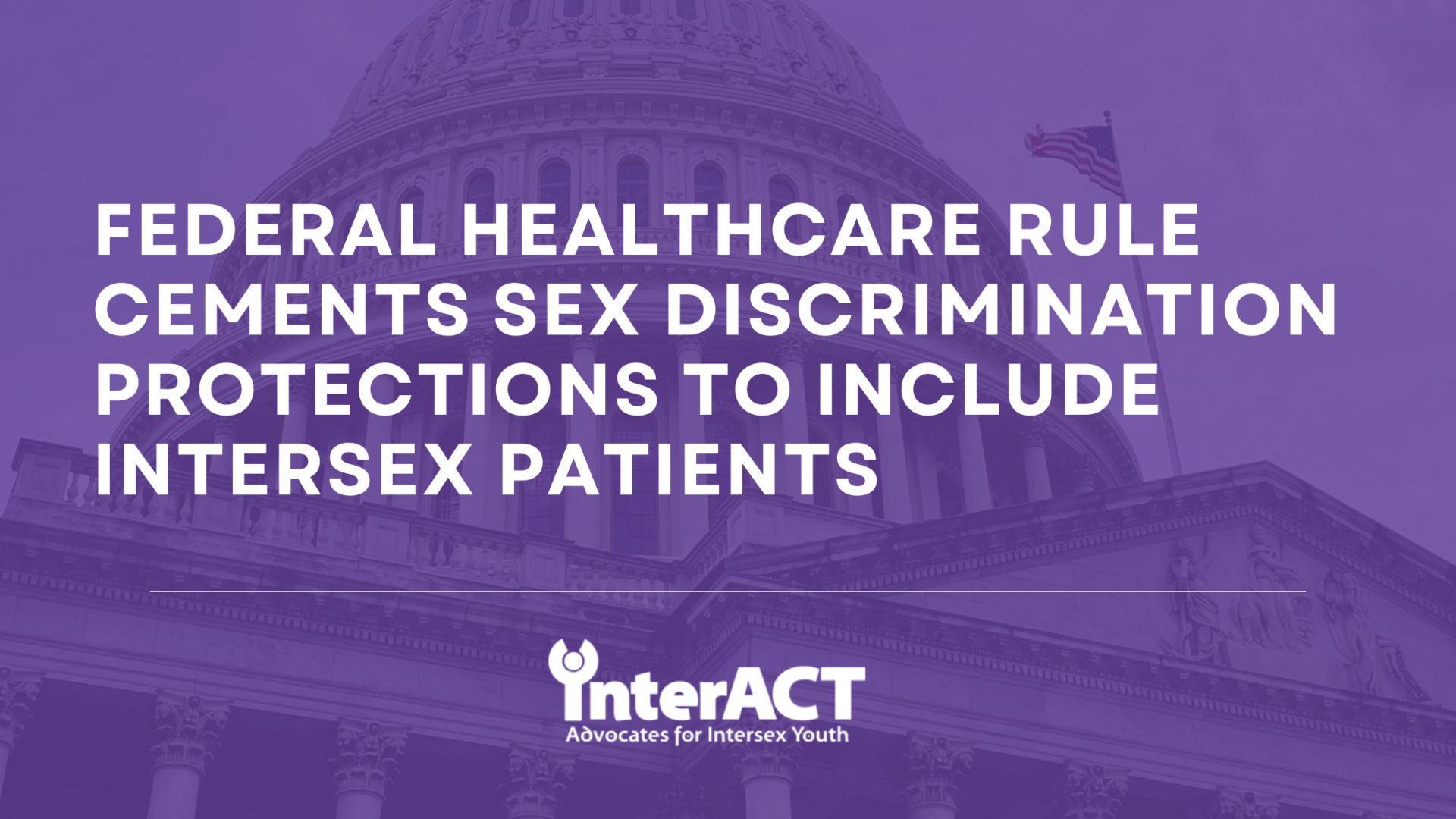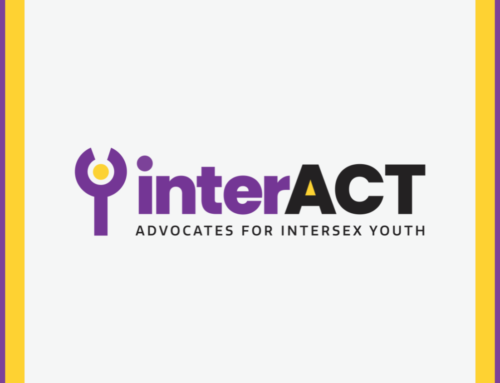
For Immediate Release. PDF available here.
Press contact: Maddie Moran, Director of Communications. maddie@interactadvocates.org
The US Department of Health and Human Services (HHS) has released its final rule on the nondiscrimination provisions of the Affordable Care Act, making clear that discrimination against intersex people within federally funded health programs is prohibited. Under the rule, sex discrimination is defined to explicitly include “discrimination on the basis of sex characteristics, including intersex traits,” as well as sexual orientation, gender identity, pregnancy and related conditions, and sex stereotypes.
Forms of discrimination falling within the scope of the ACA that intersex people commonly face include:
- Denial of healthcare services such as preventive screenings, hormone therapies, or fertility assistance because of a patient’s intersex traits or because of a provider’s reliance on binary sex stereotypes.
- Repeated and unnecessary questions about an intersex patient’s anatomy or medical history not relevant to their care.
- Denial of insurance coverage for necessary care based on a person’s intersex traits.
- Performance of genital and sterilizing surgeries on intersex infants when these procedures would not be considered but for the presence of the patient’s variation in sex characteristics.
Intersex infants and toddlers are often subjected to medically unnecessary “normalizing” surgeries that change genital appearance or remove gonads – which often amounts to sterilization – in order to impose conformity with stereotypes about male or female bodies. Today’s rule clarifies that “requiring persons to conform to stereotypical notions of sex and gender” is itself a form of sex discrimination, extending protections both to intersex children and to adult patients who face routine medical mistreatment.
HHS first announced it would interpret Section 1557 of the ACA to prohibit anti-intersex discrimination in the preamble to the 2016 rule, yet the 2020 revisions to the rule jeopardized its proper application to transgender and intersex patients. Today’s final rule restores clarity regarding the proper scope of these protections, solidifying the inclusion of intersex individuals in the regulatory text itself. OCR justified the application of Section 1557’s nondiscrimination provisions to intersex patients, stating that “[d]iscrimination on the basis of sex characteristics, including intersex variations, is a prohibited form of sex discrimination because discrimination based on anatomical or physiological sex characteristics is inherently sex-based.”
interACT: Advocates for Intersex Youth celebrates this as a civil rights victory for all LGBTQI+ people, including the many children with variations in their sex characteristics who are vulnerable to discrimination and harm in medical settings.
“We deeply appreciate the administration’s affirmation of intersex people’s civil rights,” says interACT’s Executive Director Erika Lorshbough. “People with intersex traits can experience various forms of discrimination in healthcare settings, from harassment and mistreatment to outright denial of care. Intersex adults can be misled by doctors about the existence or nature of their own intersex characteristics, and young children are too often subjected to unnecessary, nonconsensual genital surgeries because of bias against their sex trait variations. This rule stands for the basic principle that intersex people must be able to access care free from discrimination—a substantial step toward a future where a person’s intersex traits are never a basis to treat them with anything less than the dignity and respect we all deserve.”
Nondiscrimination protections are especially urgent for LGBTQI+ people in this perilous moment, as states have enacted new, discriminatory laws targeting these communities. Among these draconian measures, state bans on gender-affirming care compound injustice by specifically exempting the nonconsensual surgeries that harm young intersex children. interACT eagerly anticipates the enforcement of federal protections to address the continued practice of discriminatorily imposing unwanted interventions on intersex youth on the basis of their sex characteristics.
interACT encourages anyone who faces discrimination in health care based on their sex characteristics to file a complaint with HHS or the relevant federal civil rights office. Intersex patients can also file a complaint with HHS for violations of their right to privacy of, and access to, their own health records. Intersex people can also file a federal complaint for discrimination in other areas such education, employment, housing, or programs funded by the Department of Justice.






